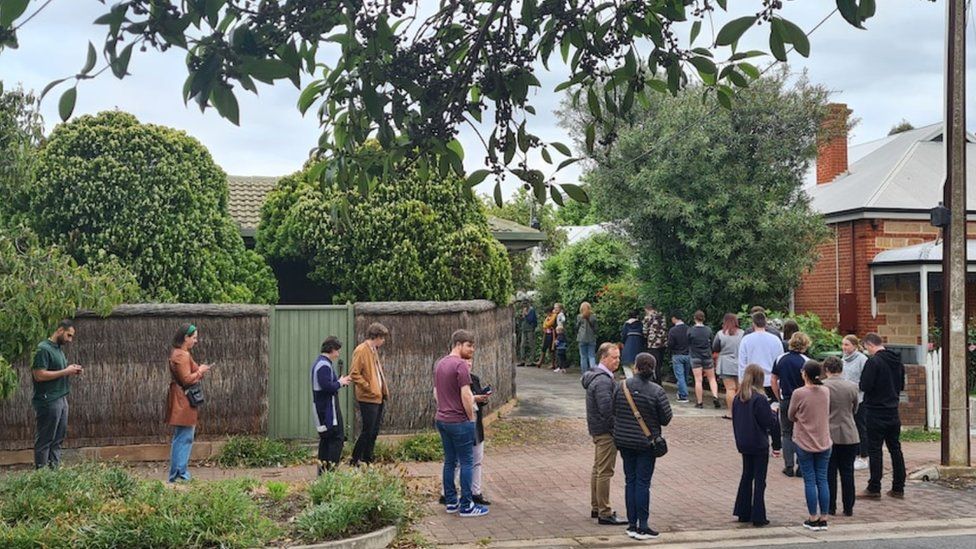The year the Australian dream died
Published
2 hours ago

A line of people waiting to inspect a house in Sydney
At the age of 31, Justin Dowswell never imagined he'd be living in a shared room in his childhood home.
He had a full-time, well-paying job in Sydney, and had rented for a decade before an unprecedented housing crisis forced him to upend his life and move back in with his parents, two hours away.
"It's humbling," he says. But the alternative was homelessness: "So I'm one of the lucky ones".
It's a far cry from the promise of the Great Australian Dream.
A perfect storm
Almost everything that could go wrong with housing
in Australia has gone wrong,
says Michael Fotheringham.
"The only thing that could make it worse is if banks started collapsing," the head of the Australian Housing and Urban Research Institute tells the BBC.
Underpinning it all is that buying a house is astronomically expensive - the average property now costs about nine times an ordinary household's income, triple what it was 25 years ago.
For generations, owning a house on a modest block of land has been idealised as both the ultimate marker of success and a gateway to a better life.
It's an aspiration that has wormed its way into the country's identity, helping to shape modern Australia.
Particularly critical was what happened at the turn of the millennium, he argues. Until that point house prices in Australia had kept pace with income growth and the size of the economy - but this began to shift when the federal government introduced tax changes which incentivised the buying and selling of homes for profit.
A sharp spike in immigration and
government grants pushed up house prices in that era too,
but Mr Kohler says it was these tax breaks that forever changed the way Australia thinks about housing.
"It will be impossible to return the price of housing to something less destructive... without purging the idea that housing is a means to create wealth as opposed to simply a place to live," he wrote.

 Forum
Forum

 Home
Home 

 Album
Album 

 Help
Help

 Search
Search

 Recent
Recent 

 Rules
Rules 

 Login
Login

 Register
Register





 Pages:
Pages: 

